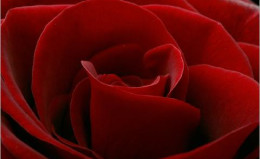
Anyone who has explored his/her inner life to a certain extent is faced with a mystery. Apart from all the outer attractions in the world, at the heart of the human, there exists something profound and beautiful in itself, a beauty without features. The mystery is not so much that two different dimensions exist- an outer world (zahir) and the inner world (batın) – but that the human being is suspended between these two dimensions, as a space in which both meet. It is as if the human being is the meeting point, the threshold between the two worlds.
Our modern languages are inadequate for describing or naming the qualities and the essence of this inner world. Perhaps the best word we have for ‘that which can grasp the unseen world of qualities’ is “the heart.” “The heart” is an intelligence that reaches beyond the intellect, a knowing that operates at the subconscious level.
The human being is an instrument of cosmic creativity. The human heart is the mirror in which divine qualities and meanings appear. And the world is the mirror in which these qualities are reflected and perceived clearly. The cosmic creativity manifests itself in and through the human heart that has the capacity for interpreting the forms and the events of material existence.
This subject may seem elusive because we are so conditioned to project qualities onto the things and the events of the world that we overlook the fact that everything of true significance is happening within us.
A mature enlightenment is seeing all these projections for what they are. The heart, because of its nearness to the divine treasure, is primary; the world is the shadow. We need not withdraw the qualities of the world into ourselves, because the heart inherently has the qualities of the divine source and the world is merely its mirror. The divine source, the heart, and the outer existence together form a unified Whole.
The heart occupies a position intermediate between the nafs (false self) and Allah. It becomes a point of contact between the two. Like a transformer, it receives the energy of the spirit and conveys it to the self. Like the physical heart, it is the center of the individual psyche.
If it is dominated by the demands of the nafs, the heart is dead; it is not a heart at all. If it is receptive to spirit, then it can receive the qualities of spirit and distribute these according to its capacity to every aspect of the human being, and from the human being to the rest of creation. If it is receptive to spirit, a heart is sensitive, living, awake, whole. It becomes the treasure for the qualities of Allah.
In this, behold, there is indeed a reminder for everyone whose heart is wide-awake–that is who lends ear with conscious mind. (Qur’an, Qaf 50: 37)
The completion of the human psyche can only be attained through the heart. The heart always has an object of love; it is always attracted to some sign of beauty. Whatever the heart holds its attention on, it will acquire its qualities. Those qualities are as much within the heart as within the thing that awakens those qualities in the heart. The situation is like two mirrors facing each other, while the original reflection comes from a third source. But one of these mirrors, the human heart, has some choice as to what it will reflect.
There are countless attractions in the world of multiplicity. Whatever we give our attention to, whatever we hold in this space of our presence, its qualities will become our qualities. If we give the heart to multiplicity, the heart will be fragmented and dispersed. If we give the heart to spiritual unity, to Allah, the heart will be unified.
Ultimately what the heart desires is unity, in which it finds peace.
Truly, in the remembrance of Allah, hearts find peace.
The nafs desires multiplicity and suffers the fragmentation caused by the conflicting attractions of the world. Hz. Rabi’a, perhaps the greatest woman saint of the Sufi tradition, said: “I am fully qualified to work as a doorkeeper, and for this reason: What is inside me, I don’t let out. What is outside me, I don’t let in. If someone comes in, he goes right out again—He has nothing to do with me at all. I am a doorkeeper of the heart, not a lump of wet clay.”
We can assume the responsibility of being the doorkeeper of our own heart, choosing what we wish to keep within the intimate space of our own being.